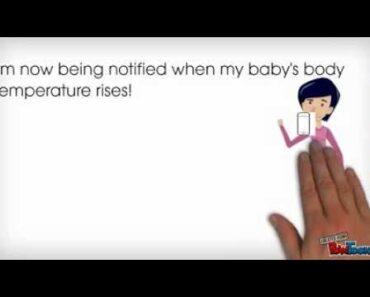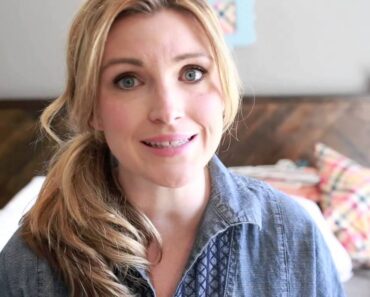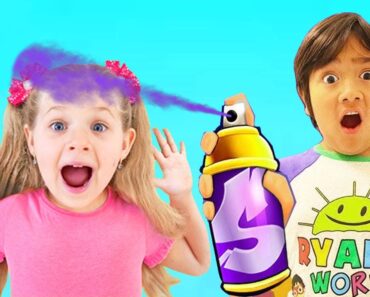There are several behavioral attributes of your baby that may come as a surprise to you.
Head banging is one of those. Head banging is a self-comforting technique used by many babies and toddlers to relieve themselves from pain, frustration, or boredom (1). Although this behavior might seem alarming, it is common among babies who often use it as a way to self-soothe.
The behavior is seldom a cause of concern but may sometimes indicate an underlying problem. Read on to learn about signs of head banging, what causes the behavior, how parents should respond to it, and when to see a doctor.
Signs Of Head Banging In Babies
If your baby repeatedly bangs their head to a pillow, wall, or crib while rocking back or forth, it could be head banging. Babies usually do it around bedtime or naptime since the rocking motion helps them fall asleep (2).
Your little one may head bang while sitting in an upright position or while lying down in bed. Here are the common signs of head banging in babies (1).
- Repeatedly banging their head to the crib or mattress.
- Sitting up just to bang their head to the wall or crib.
- Rocking back and forth and banging their head as they rock forward.
- Lying on the back and head rolling from side-to-side forcefully enough to bang their head.
How Long Does Head Banging Last?
A head banging episode is brief and often lasts around 15 minutes. The behavior usually begins between the ages of six and nine months and stops by the age of three years. A few healthy children may display the behavior up to the age of five years. If this habit persists beyond three years, consult a pediatrician (2).
What Are The Possible Causes Of Head Banging?
Head banging in healthy babies could occur due to the following reasons.
- A self-soothing technique for sleep. Head-banging behavior is often observed before the baby’s bedtime. It is theorized that this rhythmic movement is similar to that of a rocking cradle, which calms the baby to sleep. Once the baby is well-slept, they will not display the behavior.
- A response to boredom, frustration, or anxiety. Some babies may resort to head banging as a response to frustration or when they feel anxious. A baby who is bored may become fussy and head-bang. The behavior in such scenarios helps babies calm themselves.
- A form of self-stimulation technique. Some babies may bang their head to stimulate their vestibular system, which is part of the inner ear and helps the body maintain balance (3). Rhythmic movements, swaying, spinning, and rolling are some of the movements that children naturally perform to stimulate their vestibular system and improve body balance. The movement may also help improve the brain’s neural networks and their functions.
Most babies head-bang for normal reasons. However, parents and caregivers often wonder if it might indicate an issue.
Is Head Banging A Sign Of A Health Problem?
Head banging in babies is a normal reaction and rarely a sign of health problems. It is a temporary behavior and unlikely to develop into a cognitive, emotional, or physical problem. You may consider head banging a self-soothing behavior, such as thumb-sucking.
Despite the benign nature of the behavior, sometimes it might indicate a physical or mental disorder, especially if head banging persists beyond the age of three years. In some cases, head banging might be associated with the following conditions.
- Autism: Children with autism spectrum disorder tend to display head banging behavior. However, not every baby who head-bangs has or develops autism. If your baby points towards objects to communicate, is quite communicative with primary caregivers and participates in games and activities, then it is unlikely they would develop autism (4). The condition can be diagnosed by the age of 24 months.
- Stereotypic movement disorder: It is a disorder, which causes the child to make sporadic and repetitive movements (5). Head banging is one of its many symptoms, which include hand waving, nail biting, and rocking. The stereotypic movement disorder is often induced by other conditions, such as autism and Tourette syndrome.
- Neurological disorders: Some neurological problems, such as rhombencephalosynapsis, may cause the vestibular system to malfunction leading to repetitive body movements, such as head banging (6). These disorders are genetic and mostly rare.
If a baby bangs their head only before sleep and when they are fussy, then it is likely a normal behavior and not associated with a problem.
When To See A Doctor?
Consult a doctor regarding the baby’s head banging behavior in the following scenarios (2).
- The baby has trouble falling asleep or does not sleep even after head banging.
- The head banging happens a lot throughout the day.
- The baby does not seem to get sound sleep even after head banging.
- The head banging continues even after an injury.
- The baby has developmental delays.
- The baby seems to have trouble maintaining body balance and coordinating the body movements.
- The head banging has led to a bleeding injury or seems to make the baby vomit.
- The head banging continues after the age of three years, even if the baby does not display any of the above-mentioned conditions.
The doctor would perform a physical exam, check the baby’s medical history, and conduct tests to determine any underlying cause for head banging in the baby. The treatment will depend on the reason behind head banging.
How To Respond To A Baby Banging Their Head?
If head banging is not due to an underlying problem and normal behavior, you could consider the following ways to respond to it.
- Observe the baby. Check if the head banging is because the baby is unable to sleep due to some reason, such as an uncomfortable crib or warm ambient temperature. The chances are that the baby is likely to stop head banging and fall asleep if the problem is addressed.
- Distract the baby. Many babies often stop the head-banging behavior when distracted. Each time you observe the baby banging their head, distract them by calling them or saying them something funny.
- Soothe the baby. Swaddle the baby, rock the baby in arms, or cuddle with them gently before placing them into the crib. You could also observe a bedtime routine, which includes a warm bath and reading a book to calm the baby so that they fall asleep without the need for head banging.
- Try games and activities. If the baby head-bangs due to boredom, provide them with toys or play activities that will help them calm down.
- Teach baby to self-soothe. You can teach the baby alternative self-soothing techniques. For instance, you can provide the baby a pacifier before bedtime and naptime. The sucking action on the pacifier could calm and soothe the baby (7).
- Speak to the toddler. Talk to the toddler and understand what is causing the head banging. Older toddlers can communicate their feelings through simple words and sentences, which could help you understand the reason behind head banging.
- Minimize the risk of injury. Pick cribs with cushioned guard rails or walls to minimize the risk of head injury due to head banging. It can help reduce the risk of injury while you are still figuring out ways to tackle it.
You may try multiple methods and see what works the best to calm your baby and subdue to the head-banging behavior.
Head banging, body rocking, and head rolling are all rhythmic movements performed by babies to self-soothe. The following are various other self-comforting techniques, including body rocking and head rolling (1).
- Body rocking: The baby moves the whole body to and fro while in the crawling position. They may also move their torso side-to-side while sitting down.
- Head rolling: There is a side-to-side movement of the head while the baby is on their back.
- Body or leg rolling: The baby may either roll the body or move their legs from side-to-side.
- Leg banging: It usually occurs when the baby lies on the back. They constantly lift their feet and bang it back on the bed.
These movements usually start from the age of six to nine months. Babies may exhibit a couple of these rhythmic movements simultaneously.
Head banging in babies is mostly a self-soothing technique that gradually fades away as the baby grows older. Try incorporating a bedtime routine and various activities that can help the baby feel comfortable without the need for head banging. If you observe any developmental delay or have any concerns regarding your baby’s head banging behavior, do not hesitate to speak to a doctor.

































